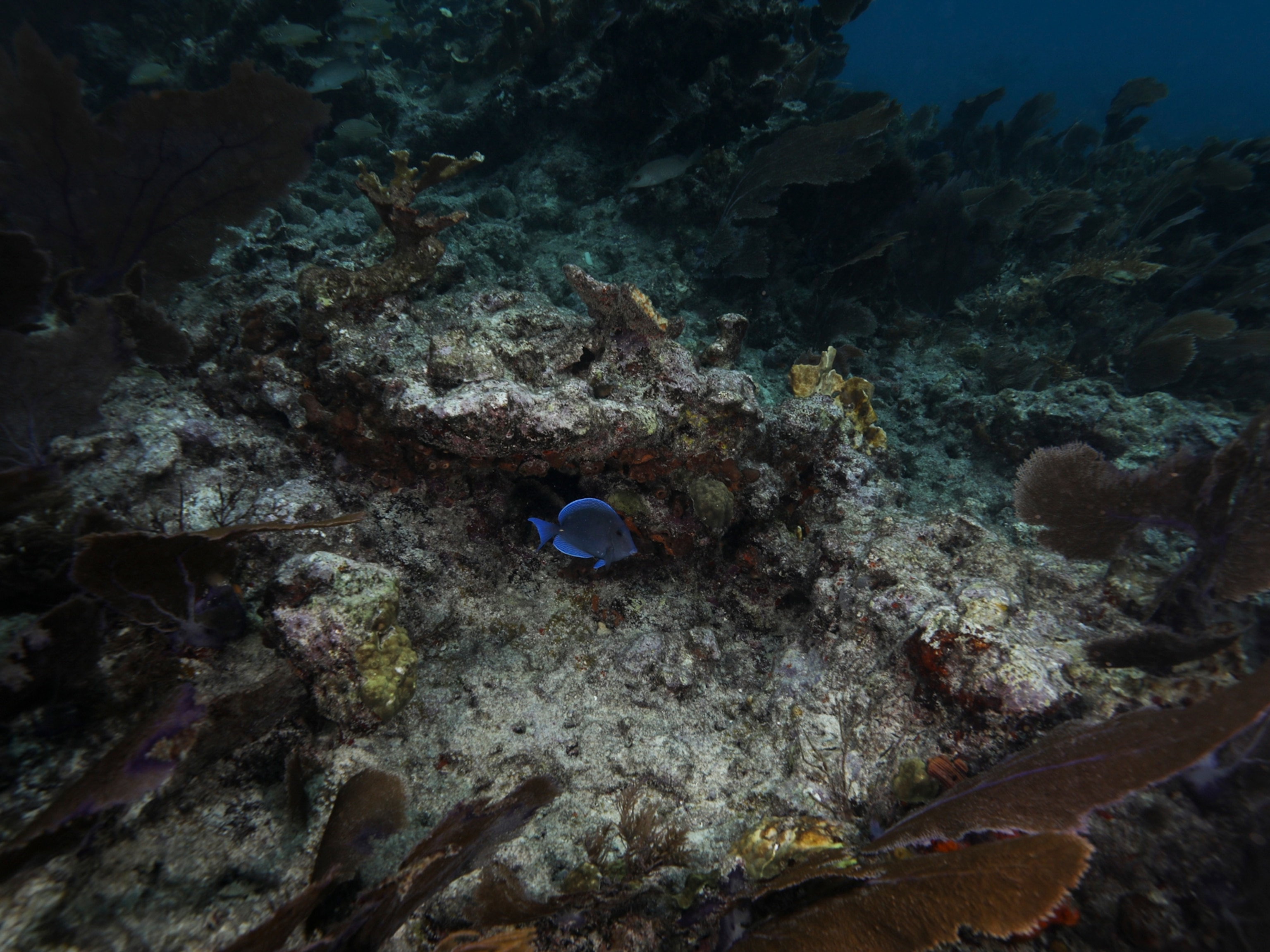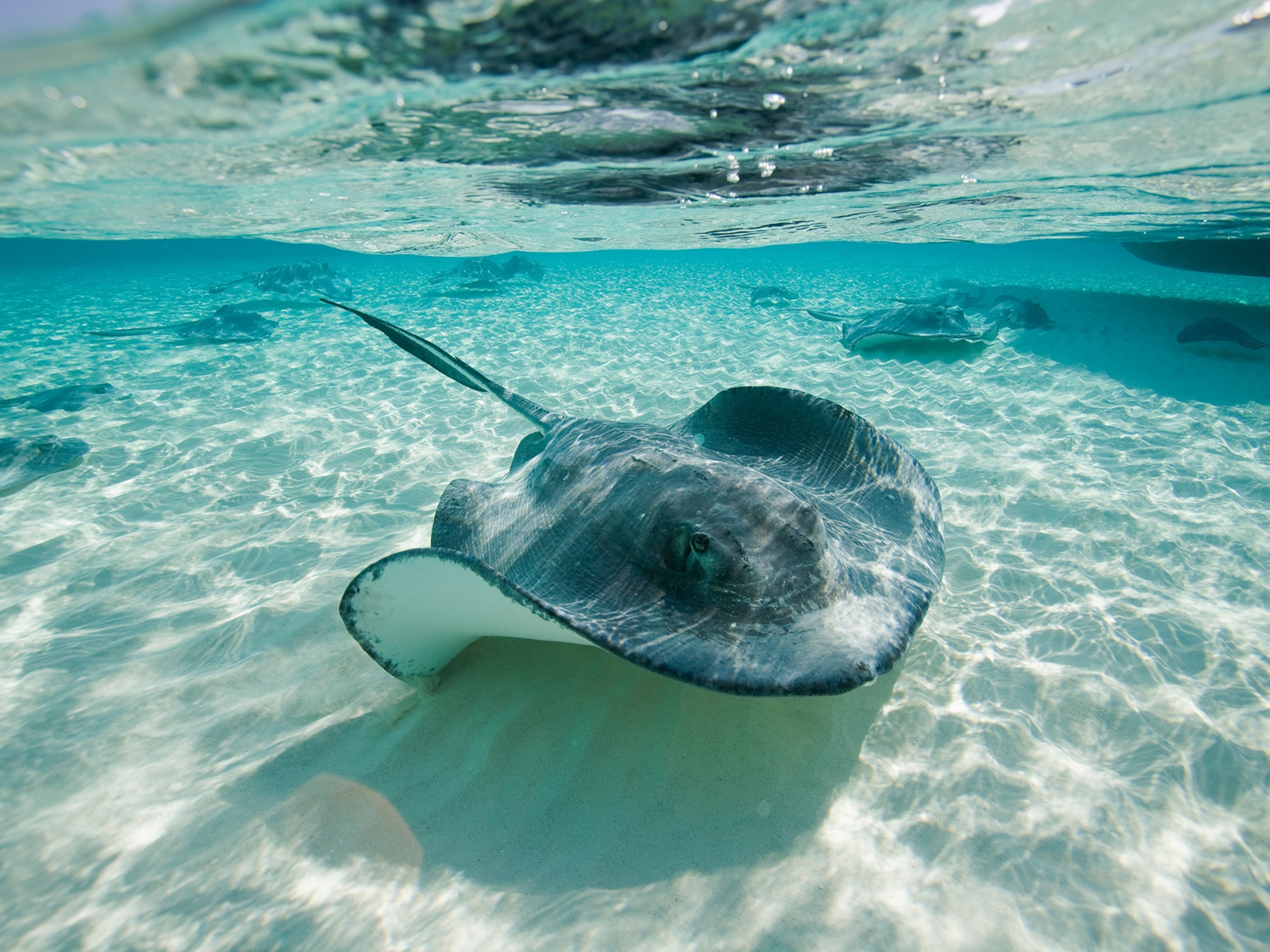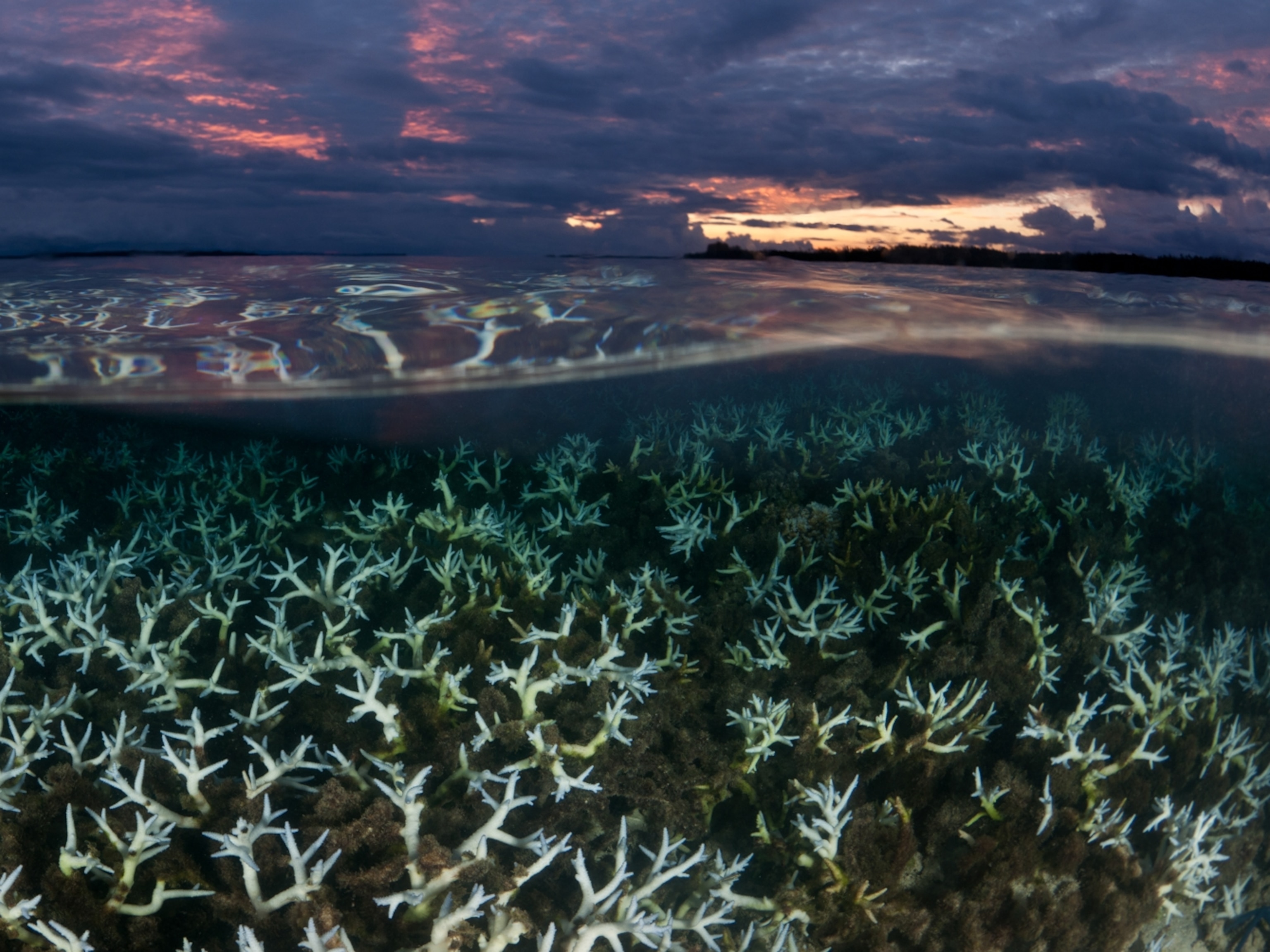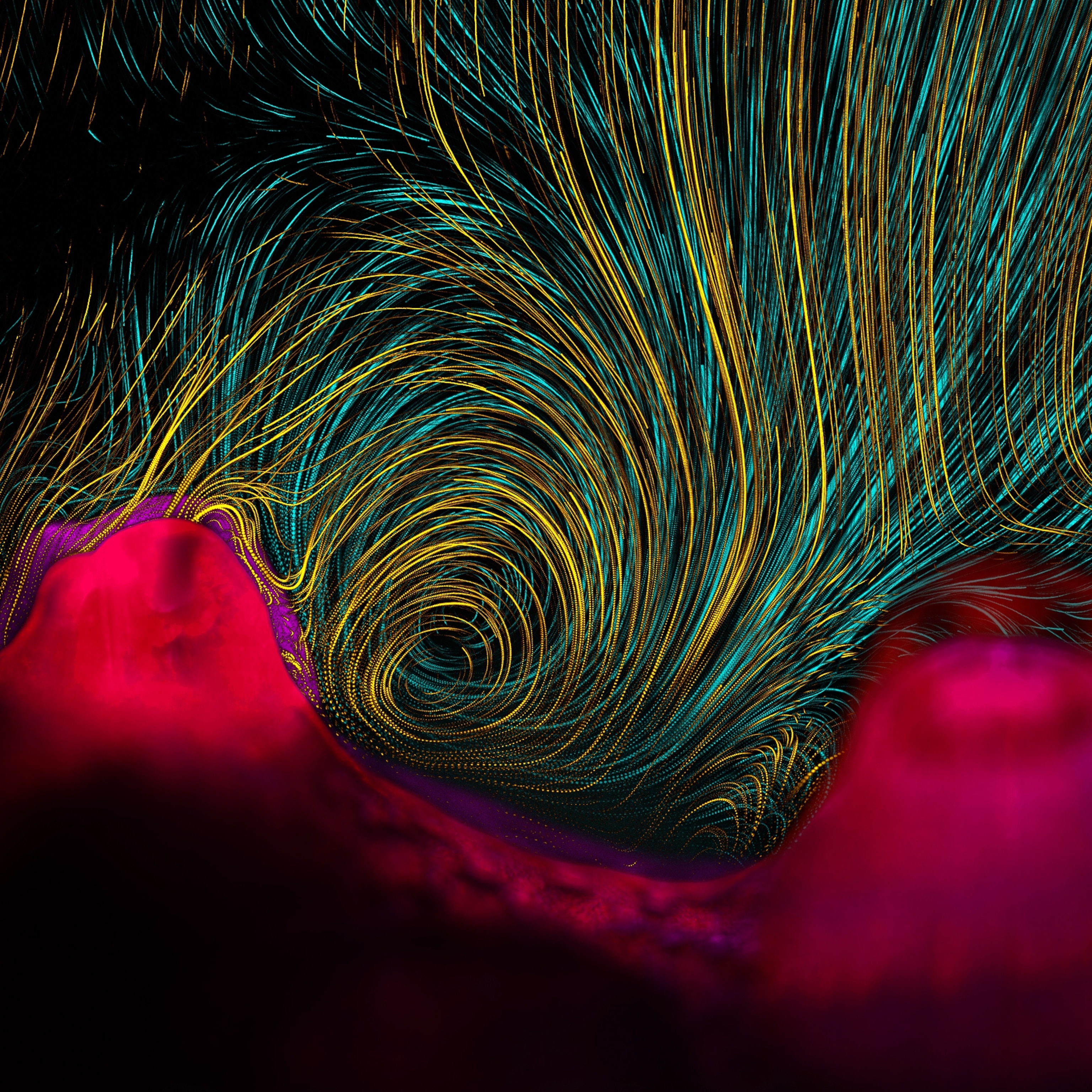
Pictures: Stunning Science Visualization Contest Winners
Images reveal the hidden worlds of coral reefs, fuzzy plants, and more.
An image is a powerful tool for understanding. Whether it's a photograph that helps us see things not apparent to the naked eye, or an illustration that presents complex information in elegant simplicity, visuals show us what words often cannot express.
When those images are also beautiful, then you are talking about this year's winners of the 2013 International Science and Engineering Visualization Challenge, announced February 6. The annual contest is run by the U.S. National Science Foundation and Science.
The first-place winner in the photography category, pictured above, reveals the mesmerizing patterns formed by the movements of two coral polyps. The photograph superimposes two images, taken 90 minutes apart, into one: Both show the water currents (gold and light blue streaks) created by the tiny hairs on cuplike polyps (reddish-pink and purple) as they beat back and forth to sweep waste products away from the animal and bring food closer to waiting tentacles.
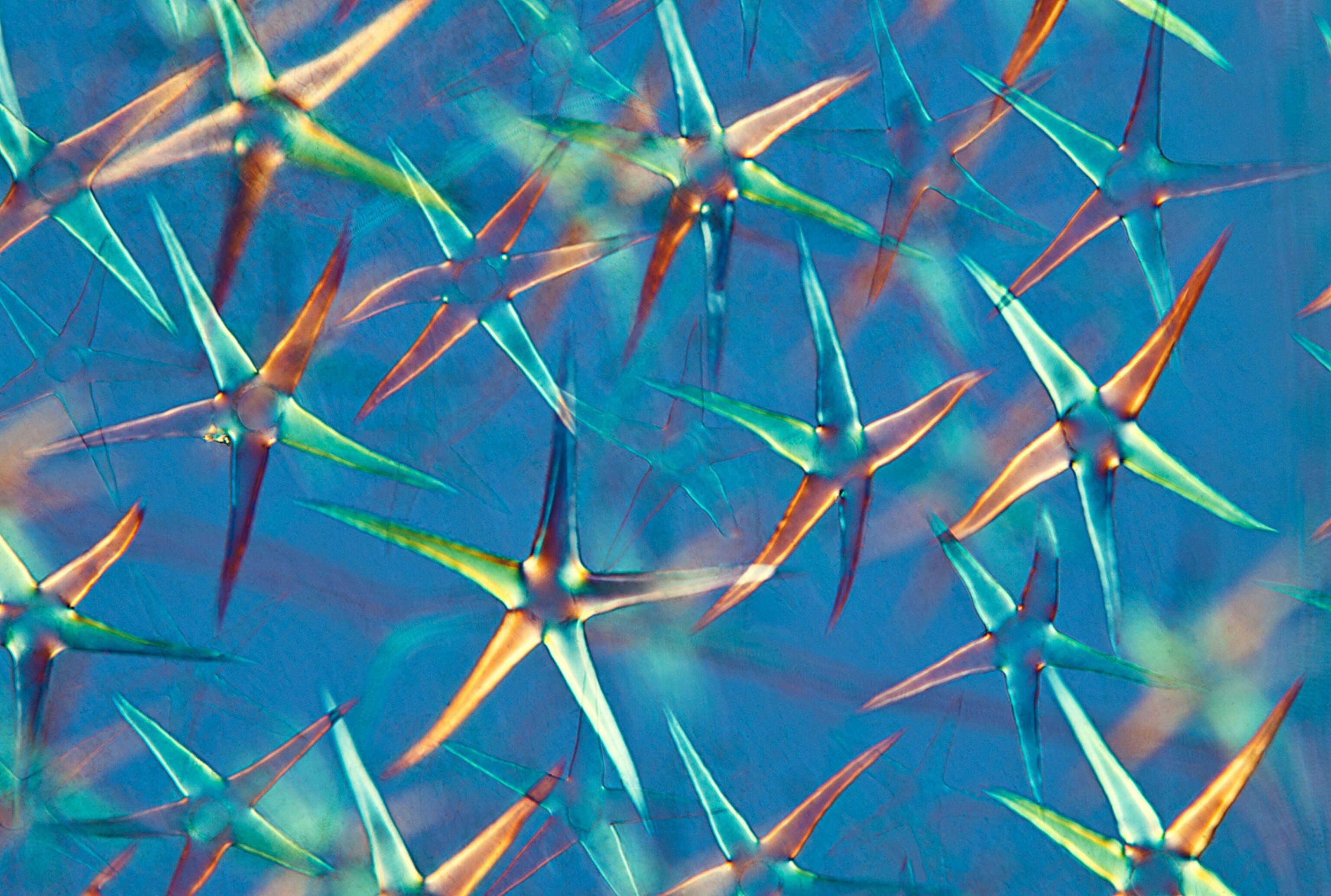
Are these tiny sea stars floating in the ocean? Or stars twinkling in the rainbow light of a distant star? Actually, these stars rest on top of tiny hairs coating the leaves of a shrub known as the fuzzy pride-of-Rochester, or fuzzy deutzia (Deutzia scabra). The hairs give this plant its fuzzy appearance.
Steve Lowry of Portstewart, Northern Ireland, used a microscope and polarized light to capture this image, which won honorable mention in the photography category.
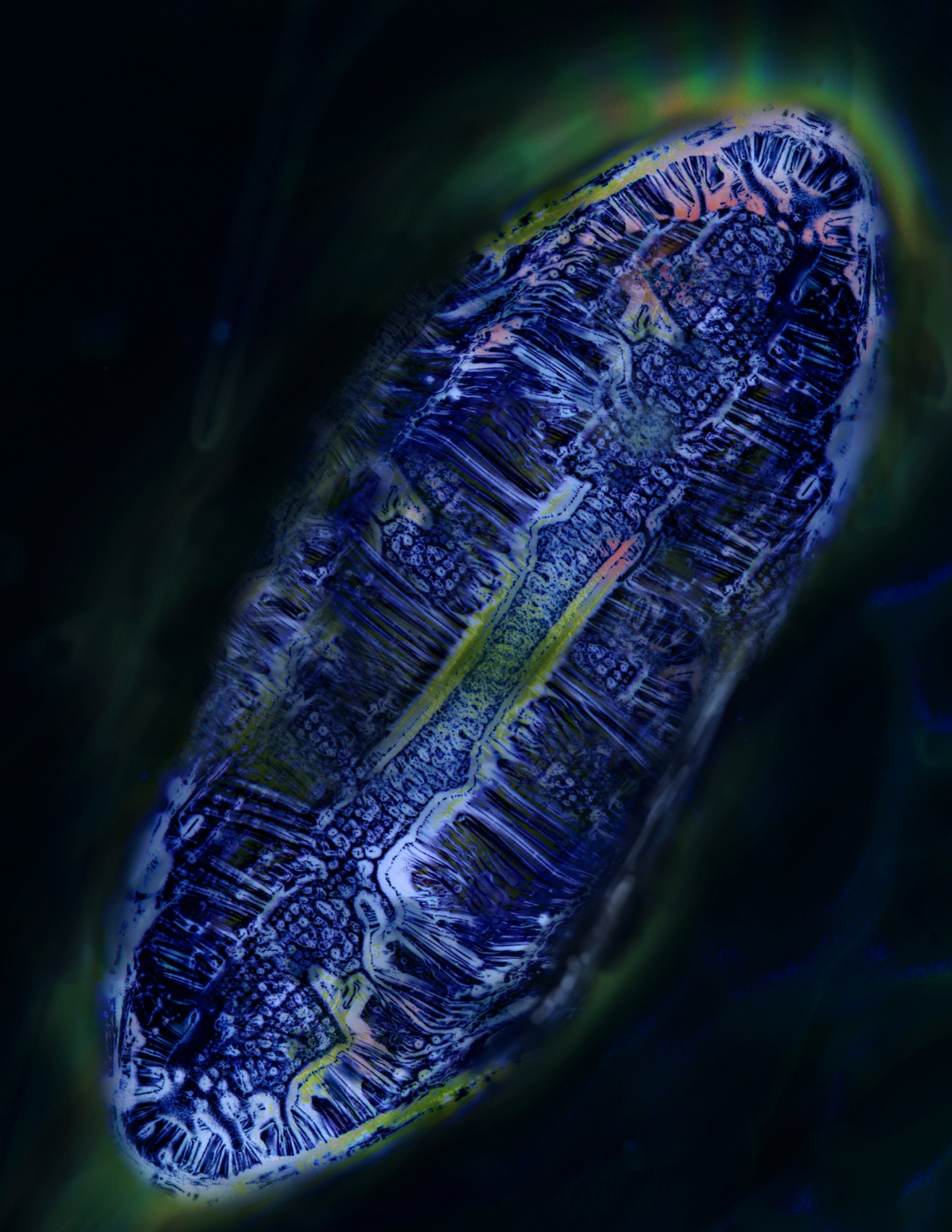
It may look like a psychedelic image of Manhattan, but the winner of the People's Choice award for photography is actually something much, much smaller.
It's a 0.07-inch-long (2-millimeter-long) piece of a compound that self-assembles into different shapes. Materials scientist Anna Pyayt at the University of South Florida in Tampa is using it to build tiny chips for medical devices that can monitor and diagnose health problems in people.
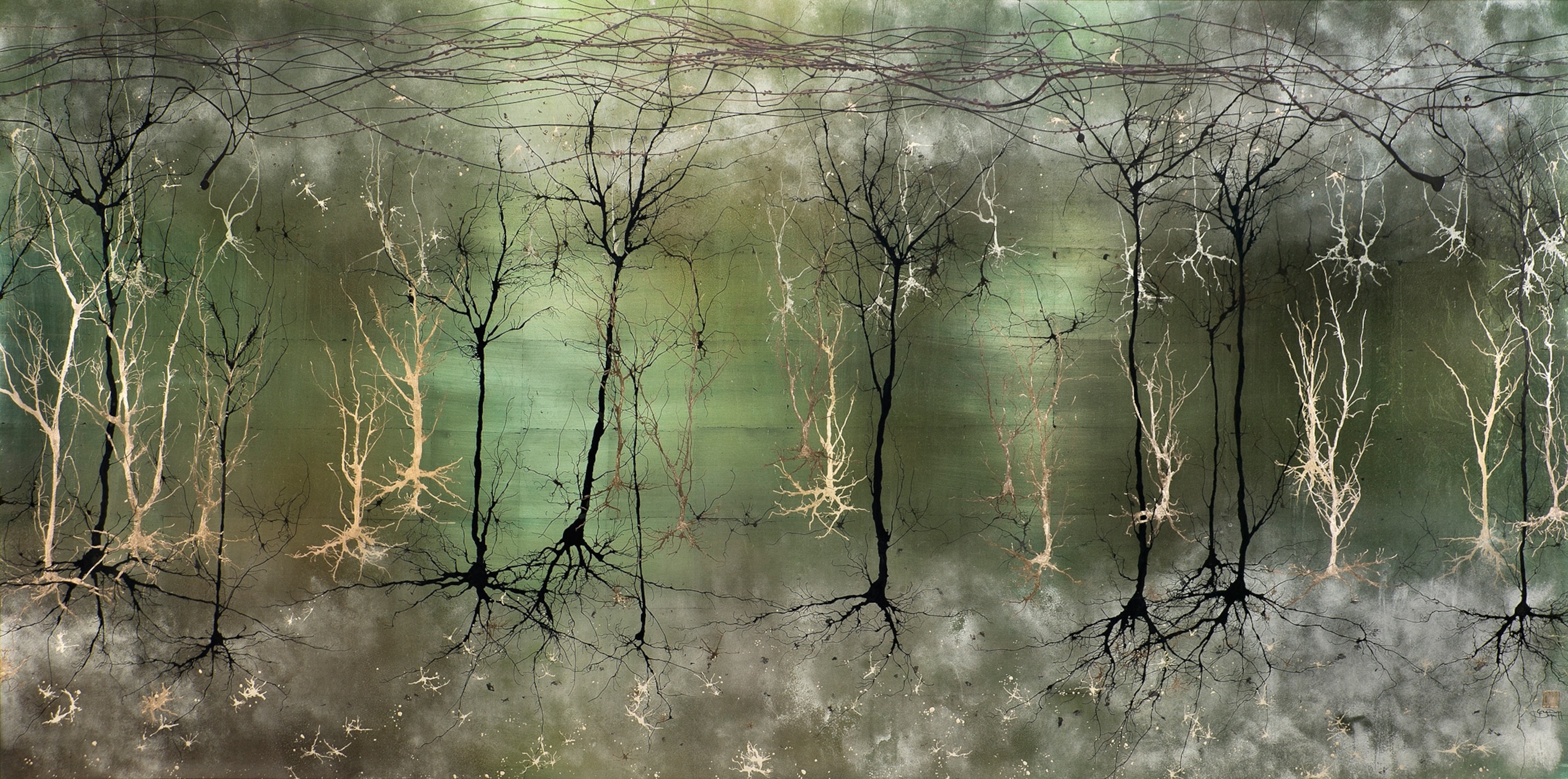
The first-place winner in the illustration category gets inside our heads: It paints a delicate picture of the nerve cells, or neurons, inside our brains.
Each neuron extends branches that connect it to other neurons in the brain. Greg Dunn, an artist with a background in neuroscience, blew pigment across a canvas to achieve the seemingly random branching pattern. Dunn then highlighted some of the neurons by coating them with gold leaf or silvery-white palladium. (Read the "Secrets of the Brain" in National Geographic magazine.)

Stop reading if you're a fan of antigerm products. All of the green specks on the sculpture of a human hand above represent bacteria that have developed resistance to antimicrobial treatments. The red dots represent microbes that are still susceptible to them.
Lydia-Marie Joubert, an electron microscope specialist at Stanford University in Palo Alto, California, won the People's Choice award in the illustration category with this depiction of Pseudomonas bacteria.
"We try to control microbes," Joubert tells Science, "but the unseen world remains victorious."

In our quest for security, it turns out we all think alike. This word cloud represents a thousand of the most common passwords for a social application and gaming website called RockYou. (See "Gone Phishing: How Major Websites Get Hacked.")
Hackers stole the information, including passwords, of 32 million users from the site in 2009 and published a subset on the Internet. In 2013, researcher Lorrie Faith Cranor at Carnegie Mellon University in Pittsburgh, Pennsylvania, decided to analyze those passwords to see which ones were the most common. <
The results—digitally printed on a cotton quilt—won honorable mention in the illustration category.
"123456," seen in the background, was by far the most used. Three times as many users had it set as their password than the next most common password.
Follow Jane J. Lee on Twitter.


